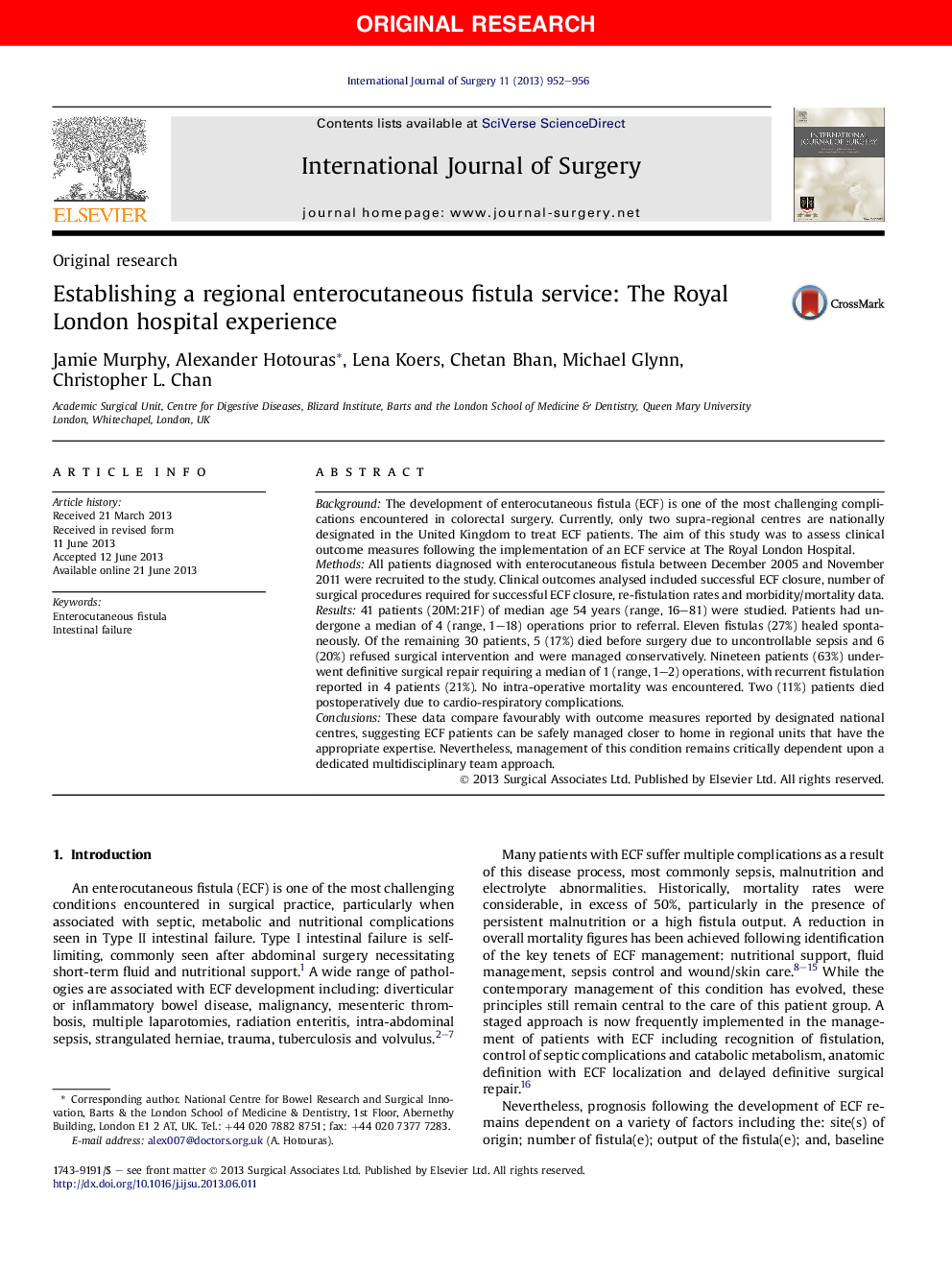| Article ID | Journal | Published Year | Pages | File Type |
|---|---|---|---|---|
| 4286762 | International Journal of Surgery | 2013 | 5 Pages |
BackgroundThe development of enterocutaneous fistula (ECF) is one of the most challenging complications encountered in colorectal surgery. Currently, only two supra-regional centres are nationally designated in the United Kingdom to treat ECF patients. The aim of this study was to assess clinical outcome measures following the implementation of an ECF service at The Royal London Hospital.MethodsAll patients diagnosed with enterocutaneous fistula between December 2005 and November 2011 were recruited to the study. Clinical outcomes analysed included successful ECF closure, number of surgical procedures required for successful ECF closure, re-fistulation rates and morbidity/mortality data.Results41 patients (20M:21F) of median age 54 years (range, 16–81) were studied. Patients had undergone a median of 4 (range, 1–18) operations prior to referral. Eleven fistulas (27%) healed spontaneously. Of the remaining 30 patients, 5 (17%) died before surgery due to uncontrollable sepsis and 6 (20%) refused surgical intervention and were managed conservatively. Nineteen patients (63%) underwent definitive surgical repair requiring a median of 1 (range, 1–2) operations, with recurrent fistulation reported in 4 patients (21%). No intra-operative mortality was encountered. Two (11%) patients died postoperatively due to cardio-respiratory complications.ConclusionsThese data compare favourably with outcome measures reported by designated national centres, suggesting ECF patients can be safely managed closer to home in regional units that have the appropriate expertise. Nevertheless, management of this condition remains critically dependent upon a dedicated multidisciplinary team approach.
